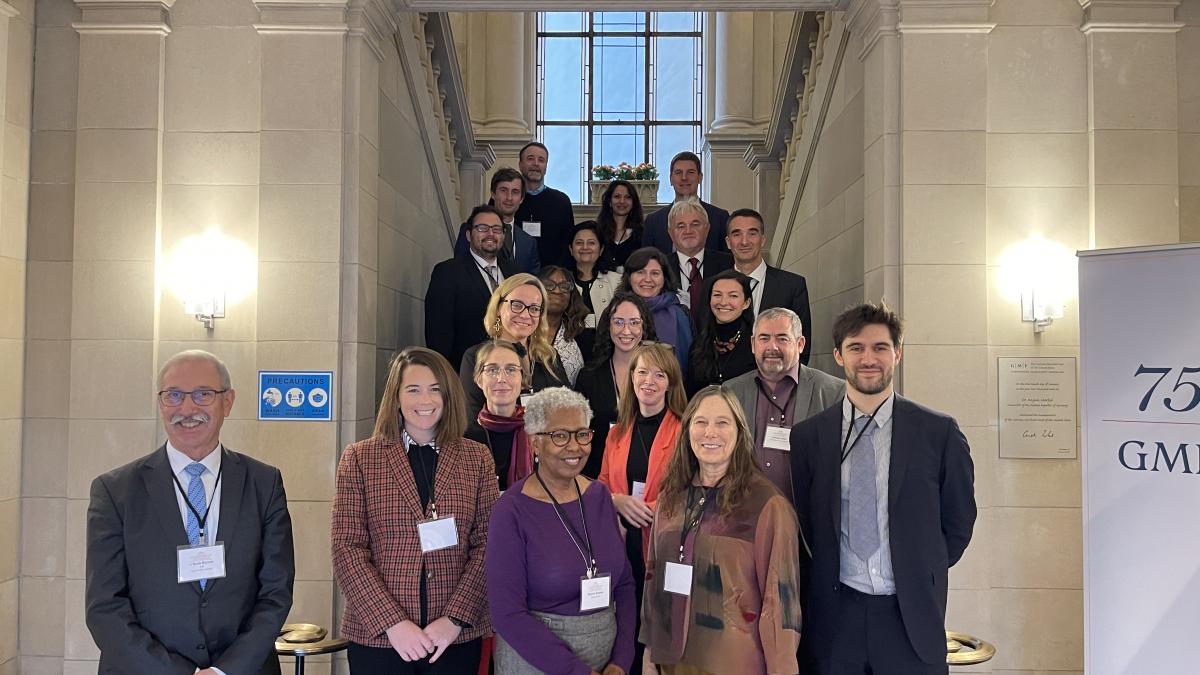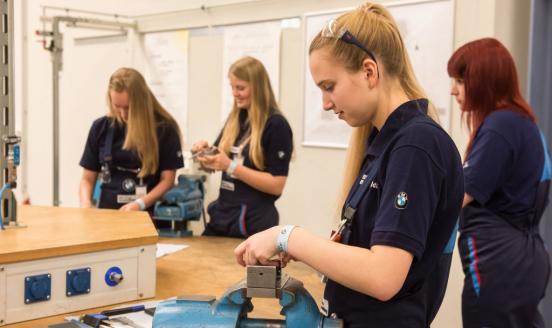The future of work: a transatlantic perspective on challenges and opportunities
A compilation of research outputs from the transatlantic expert group project, in e-book format.

Foreword
Transatlantic discussions about labour have a long history and continue to be highly topical. A 1996 memorandum of understanding signed by United States Secretary of Labor Robert Reich and then European Union Social Affairs Commissioner Pádraig Flynn created the transatlantic Working Group on Employment and Labor-Related Issues to address issues including investments in human capital, active labour-market policies and developments in the wider international context. A quarter of a century later, these issues remain pertinent. But in an ever-changing labour-market landscape, including digitalisation, rapid technological advances and the emergence of new forms of work relations, they take on new meaning and urgency. The creation in 2022 of a Trade and Labour Dialogue (TALD) under the auspices of the EU-US Trade and Technology Council (TTC) underlines the importance of transatlantic dialogues.
In early 2021, in the spirit of transatlantic cooperation and of the 1996 working group, Bruegel and the German Marshall Fund of the United States established the Transatlantic Expert Group on the Future of Work, supported by a grant from the European Union. The goals of the expert group were to promote dialogue, mutual learning and the exchange of best practices among the experts, and to develop policy findings to inform EU and US policymakers about challenges on which they will need to reflect in the coming years.
To establish the expert group, we identified experts with diverse backgrounds from civil society, academia, think tanks, labour and the business community. Almost everyone we invited accepted the invitation, suggesting that experts believe there is a great potential for transatlantic dialogue on the future of work. The 34 expert group members were divided roughly evenly between the EU and the US. EU members were based in ten countries.
During 2021-2022, 15 internal meetings were held. On three occasions, we held plenary discussions with the participation of all members. The expert group was divided into three smaller working groups, and each of these working groups had four meetings – often with the participation of other working group members. The three working groups focused on:
- Technology as a driver of change in the future of work,
- The inequality challenge and the role of education, skills training and social partners,
- The future of social protection policy.
All meetings except for the last plenary were held online. These internal meetings were inspired by kick-off remarks, sometimes by expert-group members, sometimes by outside experts to whom we are grateful: Daron Acemoglu (Institute Professor, Massachusetts Institute of Technology), Rebecca Dixon (Executive Director, The National Employment Law Project), Werner Eichhorst (Team Leader, Coordinator of Labor Market and Social Policy in Europe, IZA Institute of Labor Economics), Carl Benedikt Frey (Future of Work Director, Oxford Martin School, University of Oxford), Susan Houseman (Vice President and Director of Research, W.E. Upjohn Institute on Employment Studies), Laura Nurski (Research Fellow and Project Leader ‘Future of Work and Inclusive Growth’, Bruegel), Priyanka Sharma (Vice President US, World Education), Thiébaut Weber (Director of Partnerships, Matrice), and Loukas Zahilas (Head of the Department for Vocational Education and Training and
Qualifications, the European Centre for the Development of Vocational Training).
The numerous insightful discussions of the exert group shaped our understanding of the impacts of technologies on the future of work, their distributional consequences, the need for evolving social protection systems and the roles of social partners and policy measures in addressing related challenges, among other topics. Beyond these internal discussions, we organised five public events, recorded four podcasts, and published seven papers and five blog posts. This e-book is a collection of those publications.
I am deeply grateful to all members of the expert group (see page 7) for dedicating their time and sharing their expertise in order to improve our understanding of these issues throughout this two-year period. Special thanks go to our moderators and speakers who contributed to our five public events (see page 10) and four podcasts (see Page 13), and to the authors of the papers and blogposts.
The expert group would not have seen the light of the day without the tireless work of my project management colleagues at Bruegel and GMF, Anne-Marie Brady, Katerina Geisler, Daniel Mayer, J. Scott Marcus, Astrid Ziebarth and Sam du Pont, who helped to set up the expert group, organised the various events, contributed to papers, blogposts and podcasts, and managed the administrative issues related to this project. The invaluable support from the Bruegel communications team is gratefully acknowledged.
Last but not least, financial support from the European Union made this project possible, and special thanks go to colleagues from the European External Action Service for guiding us in the best implementation of this project.
March 2023
Zsolt Darvas
Project leader, Senior Fellow, Bruegel
This document was created and maintained with the financial support of the European Union. Its contents are the sole responsibility of Bruegel and do not necessarily reflect the views of the European Union.

View the TEG project page here.


